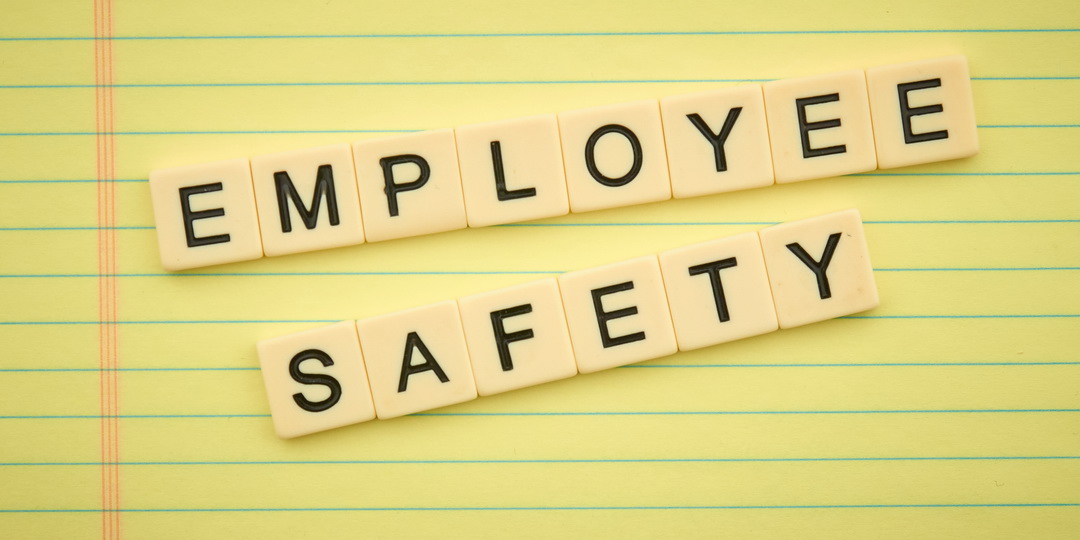The new Law on Safety and Health at Work (“Official Gazette of RS”, No. 35/2023 – hereinafter: the Law), entered into legal force on 05/07/2023, and in addition to many unchanged provisions, it also contains significant novelties that we would like to briefly present in this text.
The aim of the amendments to the Law was to increase the level of safety and health at work for employees, and to reduce the number of work-related injuries, occupational diseases and work-related diseases. At the same time, this law achieves harmonization with Directive 89/391/EEC by intorducing the measures to encourage the improvement of safety and health at work, such as:
the obligation to obtain a decision on the fulfillment of the conditions for the start of work by the labor inspection for activities in which harm and danger from dangerous substances appear, reporting to the labor inspection the beginning of a work site where work is carried out outdoors, and not construction work, preparation of a report on the arrangement of the work site, i.e. construction sites for works that last longer than three days, issuance of a work permit by the employer for the performance of high-risk jobs, introduction of work from home and remote work into the Law, changes in the way of organizing safety and health at work and the introduction of advisors, i.e. associates for occupational safety and health and the obligation of an employer with a large number of employees to hire more advisors, i.e. associates for occupational health and safety, the employer’s obligation to hire occupational medicine to monitor the health status of employees, the obligation of the employer to consult with employee representatives in matters of occupational safety and health , the introduction of an electronic register of work injuries managed by the Safety Directorate, the possibility of electronic reporting of work injuries and the start of work, the employer’s obligation to stop work at the workplace and work equipment where the injury occurred until the arrival of the labor inspector, the possibility of the labor inspector to prohibit work on the entire construction site for at least three days and to deliver this prohibition to the investor and to visibly mark the construction site.
Fines have been increased, so that a fine of 1,500,000 to 2,000,000 dinars can be imposed on the employer as a legal entity, and fixed fines have also been introduced, which labor inspectors will impose on the spot with a misdemeanor order.
The novelties are visible in the 1st article of the Law, which was amended by the subject of the Law, so that, apart from the basic and important goal of the Law, it applies both to persons who participate in work processes and to persons who find themselves in the working environment in order to prevent injuries and damage to health , the basic institutes that the Law deals with are also listed: general principles of prevention, rights of special groups of employees, obligations of employers, rights and obligations of employees, Register of injuries at work, professional examinations, issuance of licenses, supervision and penal provisions. Article 5 of the Law clarifies the categories of persons who have the right to safety and health at work, so instead of employees there are persons who are in employment and persons engaged outside of employment, persons who are self-employed, pupils and students on practical classes have been added , but also persons in the dual education system, persons who perform volunteer work, the category of persons who are undergoing professional training, persons referred for additional training on the instructions of the head of employment (NES) has been clarified, and the category of persons who perform work at employer in accordance with a special law.
Article 22 of the Law retains the obligation to report the comencment of work on the construction site eight days before, by a notification of the start of work on the site. The new thing is that an elaboration on the arrangement of the construction site must be prepared if the works last longer than three days, , and such an elaboration must be submitted to the labor inspection along with the notification of the start of work. The application from this article can be submitted electronically by the employer.
Article 44 of the Law defines the obligations in the field of OSH in the performance of work from home and remote work, so that the employer provides occupational safety and health (OSH) measures in cooperation with the employee, whereby the employer is obliged to determine the conditions for safe work, and to define the work process and prescribe preventive measures for safe work. Guidelines for the implementation of OSH measures have been elaborated in the Guide for safe and healthy work from home, issued by the Occupational Safety and Health Administration. Article 45 of the Law states that the employer can issue an act on risk assessment for working from home and remote work.
The law stipulates that the employer, as a rule, hires one of the employees for the work of an advisor, that is, an associate for OSH. The exception is that a legal entity or an entrepreneur with a license is hired for these jobs.
Article 47 of the Law defines the activities in which the employer can carry out OSH work on its own – the condition is that the employer has up to 20 employees, and the novelty is that he is obliged to take a professional exam to perform OSH work, but he does not have to have a prescribed license. The deadline for passing the professional exam for employers who perform OSH work themselves is not prescribed.
Article 56 of the Law prescribes a new obligation of the employer to provide the employee who works at night, in accordance with the law, with a preliminary and periodic examination. If the employee no longer meets the conditions for working at a workplace with increased risk, the employer is obliged to move him to another workplace that corresponds to his health capabilities. It is also a novelty that the employer is obliged to send the employee, at his request, to a medical examination that corresponds to the risks at the workplace at regular intervals, and no later than within five years of the previous examination.
Article 67 of the Law stipulates that the employer is obliged to insure the employee of work-related injuries and occupational diseases for the purpose of compensation. Up till now, this article of the law has been the cause of dillemas of our numerous clients that is whether the employer is obliged to insure employees against injury at work. However, as before, this article of the law practically still cannot be applied because a special law on occupational injury insurance has not yet been adopted, in which the insurance costs would be borne solely by the employer, and not jointly by both the employer and the employee ( as it is now the case according to the regulations on compulsory social insurance).
The novelty in the field of inspection supervision, prescribed by Article 95 of the Law, is that in the event of a serious, fatal or collective injury at work, the employer is obliged to stop work at the workplace, i.e. on the work equipment where the injury occurred, until the arrival of the labor inspector or other competent authority.
Article 96 of the Law stipulates that the labor inspector is obliged to deliver the ban on working at the workplace issued at the construction site to the investor and the coordinator during the execution phase.
A major novelty in Article 97 of the Law is the duty of the labor inspector to prohibit work on the entire construction site while the circumstances that endanger safety and health last, for at least three days the first time, at least 15 days the second time and at least 30 days the third time. The ban is imposed on the investor, and the inspector is obliged to highlight the ban on the construction site and visibly mark the construction site.
Fines have been increased, from 1,500,000 to 2,000,000 dinars for a legal entity, and fixed fines have been introduced for some misdemeanors (in Article 100 of the Law).
Article 111, paragraph 7 of the Law defines the deadline in which employers are obliged to organize their operations in accordance with the Law, which is a deadline of two years from the entry into force of the Law (until May 7, 2025).
Disclaimer: This text is written for informational purposes only as well as to give general information and understanding of the law, not to provide specific legal advice. For any additional information feel free to contact us.

Knićaninova 3
11000 Belgrade
Serbia
+381 11 3222 921
+381 11 3222 922
+381 11 3222 972
• Blog
• Careers
• Privacy Policy


